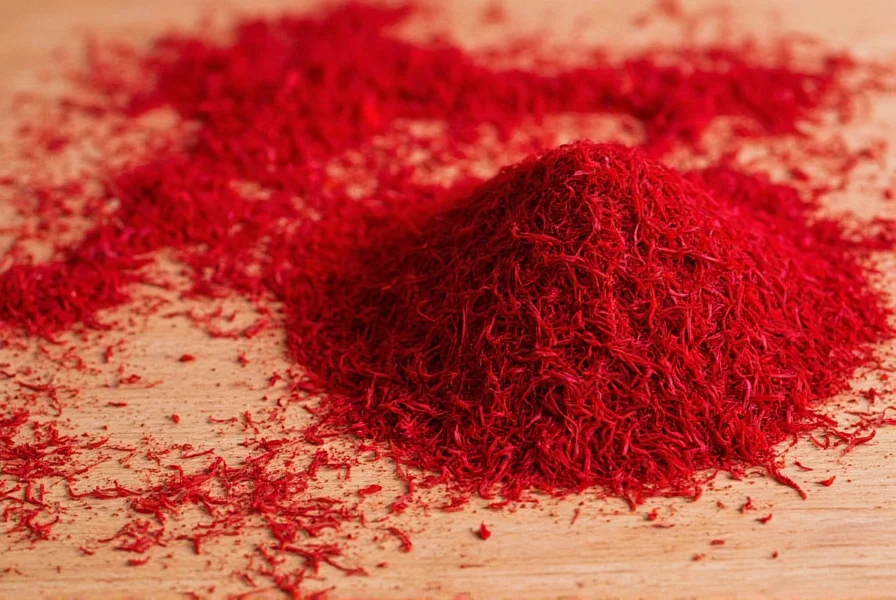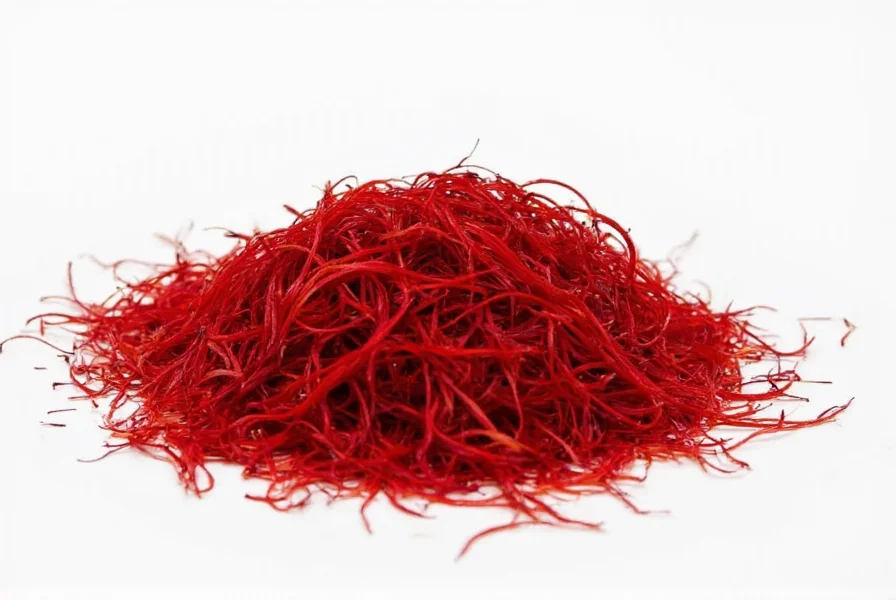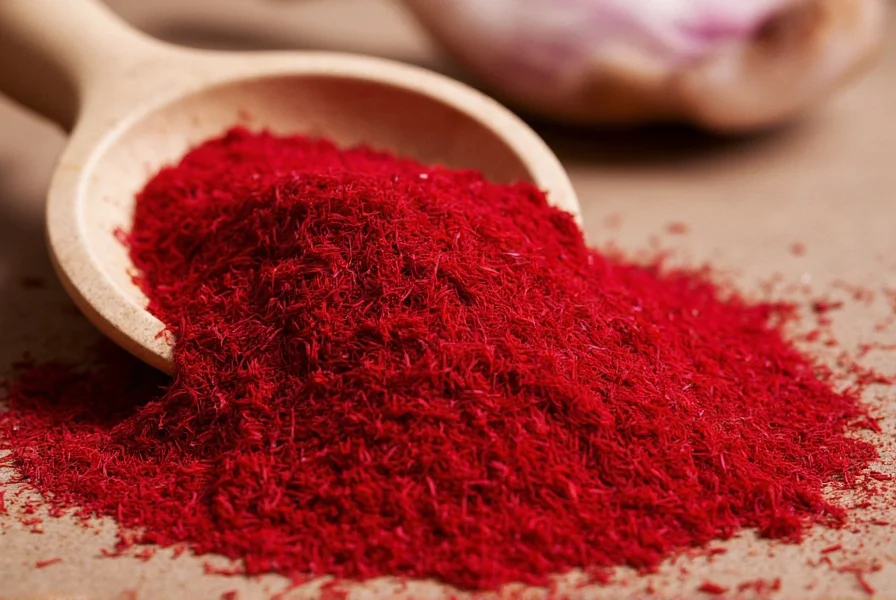Saffron, the world's most expensive spice by weight, has been prized for millennia not just for its distinctive flavor and golden hue, but for its potential health-promoting properties. This golden thread, derived from the Crocus sativus flower stigma, contains powerful compounds like crocin, crocetin, and safranal that contribute to its therapeutic effects. Understanding whether saffron is good for you requires examining the scientific evidence behind its purported benefits and recognizing appropriate usage parameters.
What Makes Saffron Nutritionally Unique
Saffron's value extends far beyond its culinary applications. This precious spice contains over 150 volatile compounds and numerous carotenoids that contribute to its biological activity. The primary bioactive components include:
| Compound | Concentration in Saffron | Primary Health Benefits |
|---|---|---|
| Crocin | 6-18% | Antioxidant, neuroprotective, mood enhancement |
| Crocetin | 0.5-2% | Anti-inflammatory, cardiovascular support |
| Safranal | 0.5-1% | Anxiety reduction, antioxidant properties |
| Picrocrocin | 3-8% | Contributes to saffron's distinctive taste |
Science-Backed Health Benefits of Saffron
Mood Enhancement and Depression Management
Among the most well-researched saffron health benefits is its positive impact on mood. Multiple clinical trials demonstrate that saffron supplementation (typically 30 mg daily of standardized extract) shows comparable effectiveness to conventional antidepressants like fluoxetine for mild to moderate depression, with fewer side effects. A 2020 meta-analysis published in Phytomedicine concluded that saffron significantly reduced depression symptoms compared to placebo. This makes saffron one of the most promising natural options for those asking is saffron good for your mental health.
Eye Health Protection
Research suggests saffron may help protect against age-related macular degeneration (AMD) and other retinal conditions. The carotenoids in saffron, particularly crocin, appear to improve retinal blood flow and protect photoreceptor cells from damage. A 2010 study in the Investigative Ophthalmology & Visual Science journal found that daily saffron supplementation (20 mg) improved retinal function in patients with early AMD within three months.

Antioxidant and Anti-Inflammatory Properties
Saffron ranks among the most potent natural antioxidants. Its compounds effectively neutralize free radicals and reduce oxidative stress throughout the body. This antioxidant capacity contributes to saffron's potential protective effects against chronic diseases including cardiovascular conditions and certain cancers. When evaluating is saffron good for your overall health, its antioxidant profile represents a significant benefit.
Menstrual and PMS Symptom Relief
Women specifically may benefit from saffron's effects on premenstrual syndrome (PMS). A randomized controlled trial published in Complementary Therapies in Medicine found that 30 mg of saffron daily significantly reduced PMS symptoms including irritability, headaches, and cravings compared to placebo. This addresses a common question about what are the benefits of saffron for women.
Potential Risks and Side Effects
While saffron is safe when used as a spice in cooking, higher supplemental doses require caution:
- Recommended safe dosage: Up to 1.5 grams daily is generally considered safe for most adults
- Medicinal doses: Clinical studies typically use 30 mg of standardized extract daily
- Potential side effects at high doses: Dizziness, nausea, dry mouth, anxiety, and in extreme cases (over 5 grams), poisoning symptoms
- Special populations: Pregnant women should avoid medicinal doses as saffron may stimulate uterine contractions
When considering is saffron safe to consume daily, the answer depends on the amount. Culinary use (less than 1.5 grams) presents minimal risk, while long-term supplemental use should be monitored by a healthcare provider.
Quality Considerations: Avoiding Adulterated Saffron
Due to saffron's high cost, adulteration is common in the marketplace. Low-quality or fake saffron won't deliver the expected health benefits. To ensure you're getting authentic saffron:
- Look for deep red threads with orange tips (avoid uniformly red or yellow threads)
- Perform the water test: genuine saffron slowly releases a golden-yellow color
- Purchase from reputable suppliers who provide origin information
- Consider standardized extracts for medicinal purposes

How to Incorporate Saffron Into Your Diet
For those wondering how much saffron is good for you daily, culinary use typically involves 15-30 threads (about 0.1-0.2 grams) per serving. Here are practical ways to include saffron:
- Traditional preparation: Crush 10-15 threads and soak in 2-3 tablespoons of warm water or broth for 15 minutes before adding to dishes
- Culinary applications: Use in rice dishes, soups, stews, and baked goods
- Beverages: Add to warm milk (golden milk), tea, or smoothies
- Supplementation: For therapeutic benefits, consider standardized extracts providing 30 mg daily of active compounds
Conclusion: Is Saffron Worth Incorporating?
The evidence strongly supports that saffron is good for you when used appropriately. Its impressive antioxidant profile, mood-enhancing properties, and potential eye health benefits make it a valuable addition to a health-conscious diet. While not a miracle cure, saffron represents one of the better-researched natural supplements with multiple evidence-backed benefits. When evaluating is saffron good for you, the scientific consensus points to yes—with the important caveats of appropriate dosage and quality considerations. For specific health conditions, consult with a healthcare provider before using saffron medicinally.











 浙公网安备
33010002000092号
浙公网安备
33010002000092号 浙B2-20120091-4
浙B2-20120091-4